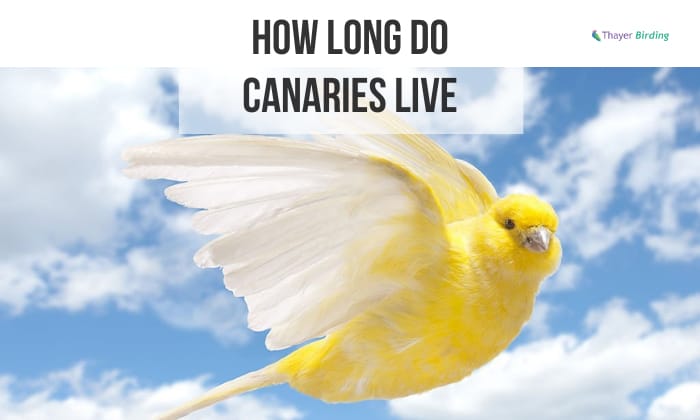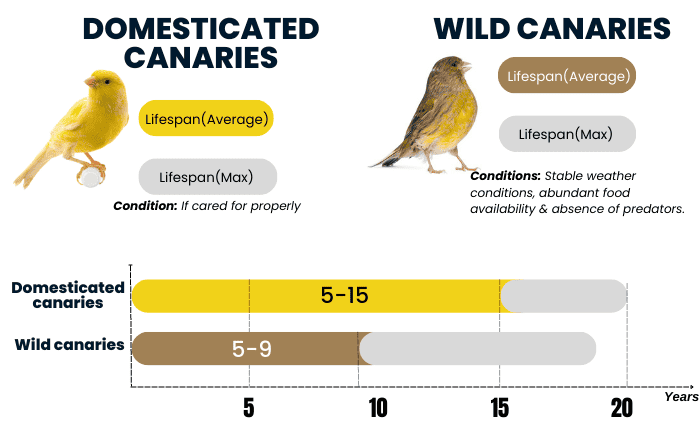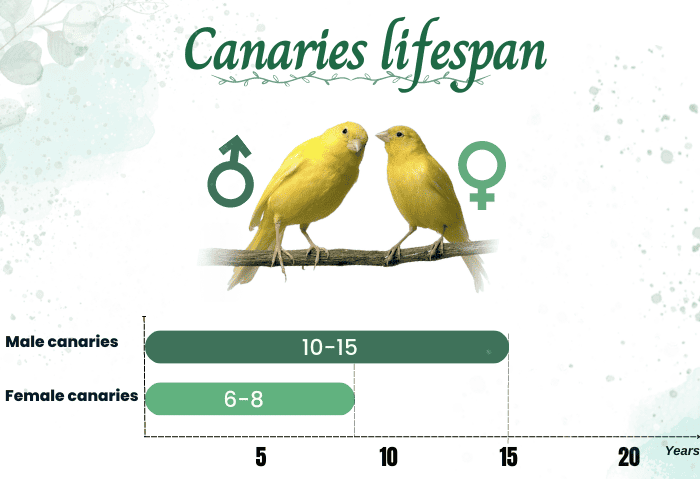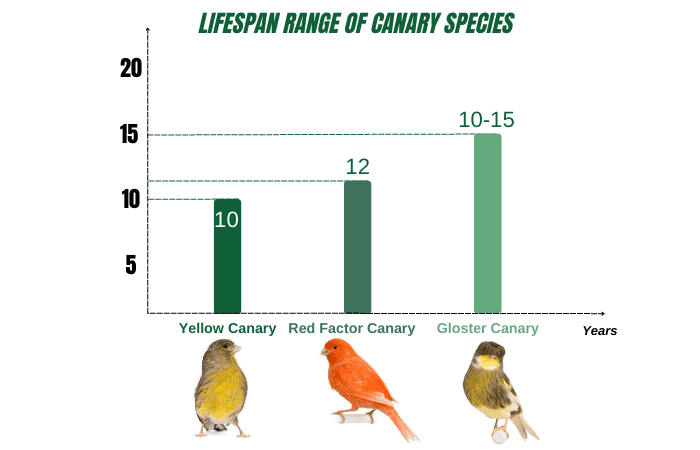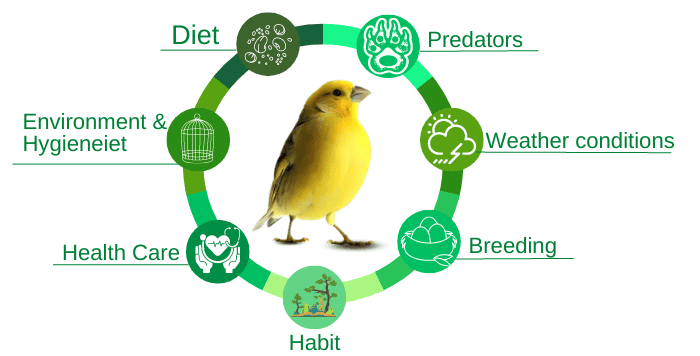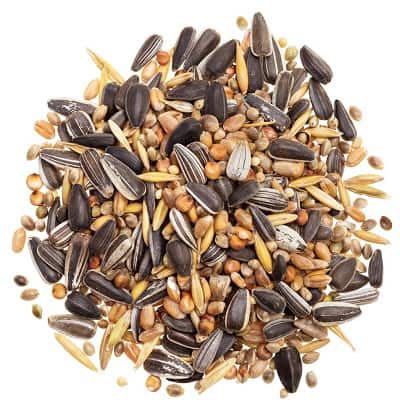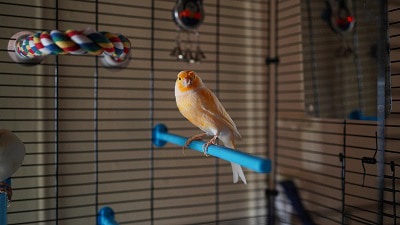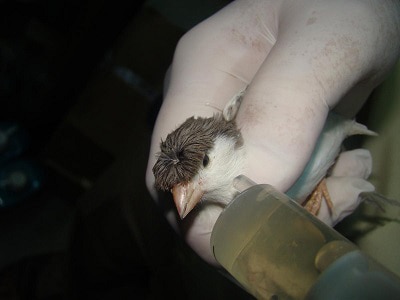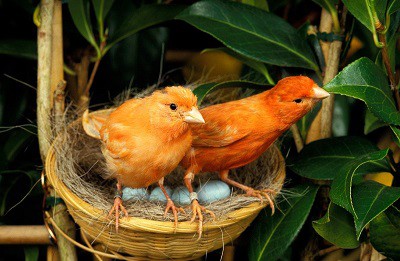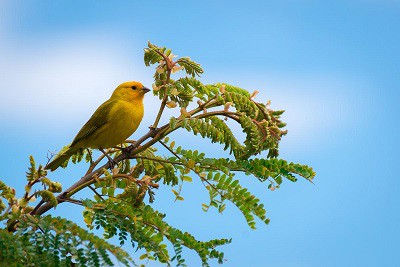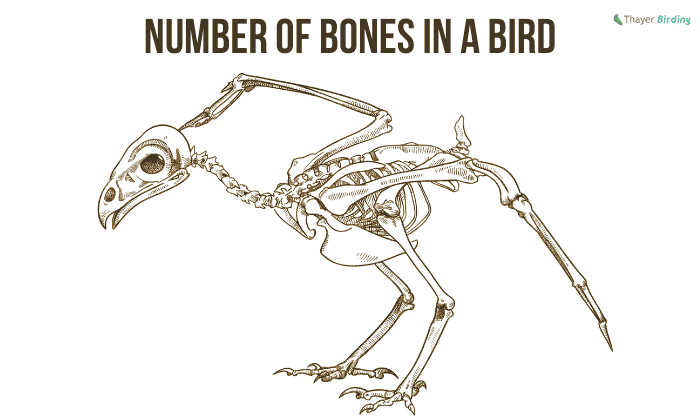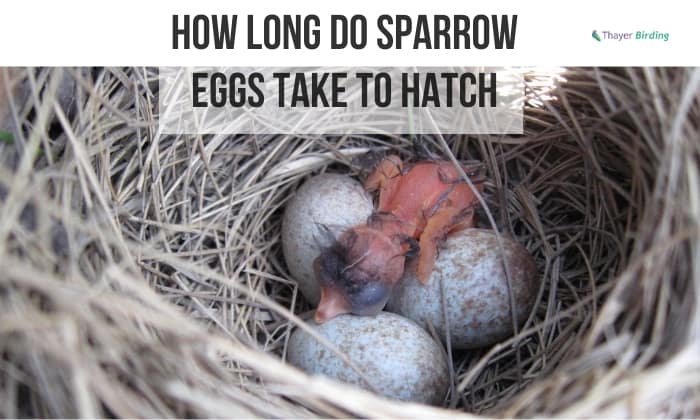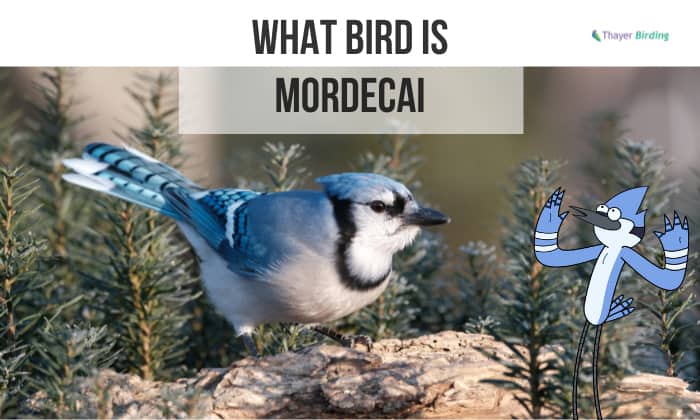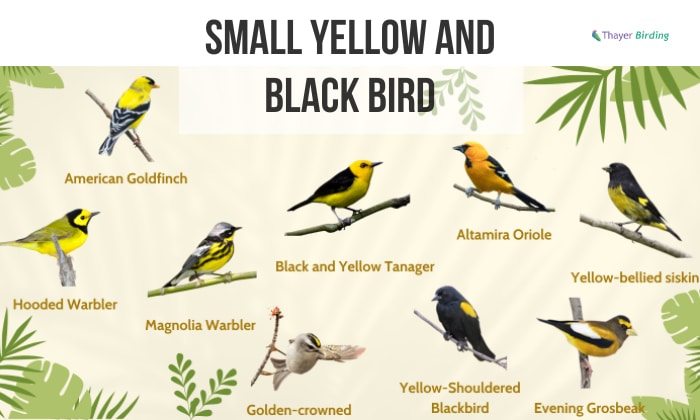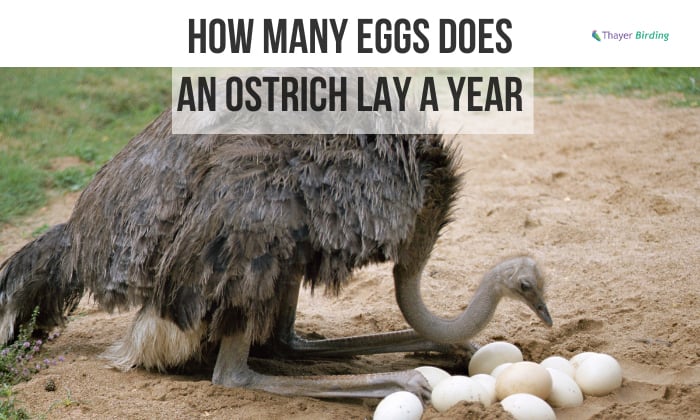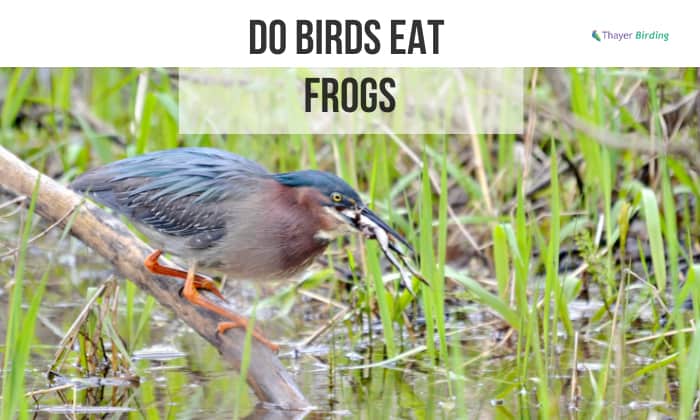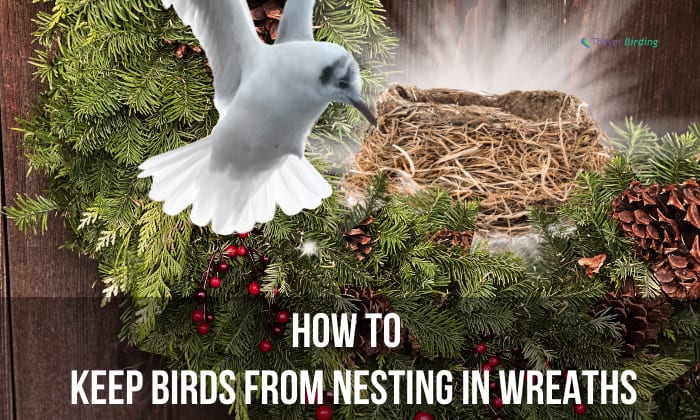Do you know that canaries were initially bred for royal courts in Spain and the United Kingdom? In this day and age, anyone can own one of these birds as a pet.
For would-be and newbie canary pet owners, one of the common questions they ask first is how long do canaries live? The average lifespan of a domestic or caged canary is 5 to 15 years, while canaries in the wild can live around 5 to 9 years.
Table of Contents
How Long Do Canaries Live?
On average, canaries can live for 5 to 15 years. That said, the lifespan of the canary is influenced by several variables, such as whether they are caged or living in the wild, their breed, and gender.
Other external factors, such as the kind of canary care they are given, will also determine how long they will live. The oldest canary bird lived for 34 years and is on the Guinness World Record.
1. Wild canaries vs Domesticated canaries
A domestic canary has an average lifespan of 5-15 years—that’s how old canaries live as pets. They can live even longer (up to 20 years) if cared for properly, which includes enough space to fly, an adequate diet, and annual health check-ups.
Wild canaries, on the other hand, have a shorter lifespan – 5 to 9 years. That said, there have been records of wild canaries living up to 15–18 years. The reason behind their shorter life expectancy is varying weather conditions, food availability (or lack thereof), and predators.
The wild species, also known as the Atlantic Canary (Serinus canaria), is a yellow canary with a mix of dull green and brown streaks on the back.
2. Male canaries vs Female canaries
A female canary doesn’t live as long as its male counterpart as it has to bear the burden of breeding and taking care of the young. Therefore, female canaries have a short life expectancy of 6 to 8 years.
On the bright side, if you keep your female canary from laying eggs and taking care of chicks, it can reach the same average lifespan as the males.
3. Species of canaries
1. Yellow Canary
Yellow canaries, also known as the Atlantic Canary (Serinus canaria), feature brilliant yellow feathers with a mix of green and brown streaks on the back. These can live up to 10 years, although most can only reach 10.
2. Red Factor Canary
The red factor canary is a popular color-bred canary, meaning that it’s bred for the plumage colors rather than singing capabilities. Like most canaries, it is a low-maintenance bird, but breeding it is rather difficult.
The average lifespan of a red factor canary is 12 years.
3. Gloster Canary
Gloster canaries are small active birds bred for their short and stubby appearance. If you do not want a loud and noisy bird, then you can choose the Gloster canary, which boasts a distinctive bushy crest.
These canary breeds come in different colors or a combination of these shades, including a species of yellow, cinnamon, grey, and white canaries. Green canaries of the Gloster breed also exist.
The life expectancy of Gloster Canaries is around 10-15 years.
Factors That Affect Canary Lifespan
1. In Captivity
- Diet
Canaries are granivores (meaning seed-eaters). Like any living thing, the quality of their diet will affect their lifespan. Proper nutrition is essential if you want your pet canary to live longer. A diet made of a good seed mix fortified with vitamins will be good for them.
- Environment and Hygiene
The quality of the cage and how it is maintained affects the well-being of your pet canary. Health problems may arise and shorten the lifespan of your bird if the enclosure is too small.
Canaries should be given enough space to fly around. If the cage is small, releasing the bird regularly in a safe room constitutes exercise time and can translate to a healthy and longer life for the bird.
In addition, care for a canary should include regular cage cleaning. This will keep it healthy and give the bird the impression that it’s clean, which prevents issues such as over-preening. Try to tidy up the cage once a week and deep-clean it once a month.
- Health Care
One of the most important factors that can greatly affect the lifespan of a canary is its health. Any signs of malnutrition and infections (viral, bacterial, and fungal) should alert the pet owner to seek help from an avian vet.
Diseases and health problems can cause early death in your canary. It is essential to have them checked annually by your local veterinarian.
- Breeding
The breeding process drastically shortens the lifespan of the female canary because of the strain it puts on their bodies. Mating, laying eggs, and taking care of the young can shave off years of their life.
2. In the Wild
- Habitat
Canaries in the wild are found in forests and open fields. The destruction of many forests and other natural bird habitats affect their survival in the wild.
- Weather conditions
Being in the wild means being exposed to the changing seasons and harsh weather conditions, such as extreme temperatures in summer and winter. Severe climate aside, natural disasters may also make canaries die prematurely.
- Predators
Canaries are small birds and are a vulnerable target of reptiles, bigger birds like raptors, and other opportunistic predators. They are also at risk of being killed by humans, such as bird hunters.
Strategies to Extend Canary Lifespan – How to Care for Canaries
- Proper Diet and Nutrition
Your caged canary should be given a good seed mix consisting of canary seeds, linseed, granulated oats, millet, and vitamin. You can also add specialized pellets to add variety to your pet’s diet.
You can also give them vegetables such as canary grass, broccoli, celery, and spinach. They will also eat fruits such as apples and bananas, and this is a good way to supplement their diet with natural sources of vitamins and minerals.
Care for a canary also includes providing clean water to keep them hydrated.
- A clean and healthy environment
This is one of the most important things that should be done right from the very beginning when getting a canary. The cage should be the right size; a small and restrictive cage can make your canary sick because they have no room to fly. The standard cage for a canary is at least 10 inches high and 17 inches wide.
The cage should also be kept clean to prevent diseases. Canaries in a cage should be placed in an area with good ventilation and access to fresh air. This will keep your pet happy and live longer.
Perches and some interesting toys should be placed in the cage to keep them entertained.
- Regular Health Checks
When your pet canary gets sick, it can lose its appetite and die quickly. If not properly taken care of, canaries are susceptible to respiratory problems and infections. Thus, it’s important to bring your canaries to a licensed veterinarian every year for a regular check-up.
Frequently Asked Questions
Where do canary birds live?
The wild canary (Serinus canaria), also known as the Atlantic canary, is native to the Canary, Azores, and Madeira islands. They are adaptable birds and are found in a variety of habitats which include pine and laurel forests, as well as in backyards or parks.
How can I tell if my canary is healthy?
Canaries are generally cheerful birds that enjoy singing, so when they make chirping sounds, it’s a good indication that they’re in good health. Similarly, a healthy canary will have a hearty appetite and shiny feathers without bald patches.
In contrast, a canary with health issues will exhibit signs such as losing weight, appetite, or patches of feathers.
Reasons why canaries in the wild live longer:
As mentioned above, if properly taken care of, a caged canary will live longer than one in the wild. That said, there are factors that may help lengthen the life expectancy of wild canaries:
- They eat an all-natural diet in the wild. They love eating seeds, and this constitutes the majority of their diet. Their food comes straight from plants with no additives or preservatives. Their organic diet can make them live longer.
- They can fly freely without being restricted. This allows them more exercise, and such activities are good for their general well-being.
What are the types of domestic canaries?
- Color-bred canaries – These include yellow, orange, red, white, and green canaries.
- Type canaries – These birds are bred for their shape or appearance, which includes the Australian plain head, Gloster, Berner, and Yorkshire.
- Song canaries – These canaries are bred for their distinctive singing abilities. Examples of a song-bred canary include the Spanish Timbrado, the German roller, and the American singer.
Conclusion
Canaries are delightful and easy to take care of, and you will surely appreciate having them for years. Having the right knowledge about this type of bird and knowing the answer to questions such as “How long do canaries live?” will make one a responsible pet owner.
The tips on how to extend the lifespan of your bird should always be kept in mind if you want to spend long years with your canary. A happy bird means a happy pet owner.

George and I became friends after a birdwatching trip with our new group. And we have been enjoying every adventure together. When he told me the idea of establishing a site that shares our experiences and fun, I immediately agreed. After trials and errors, here we have Thayerbirding.


